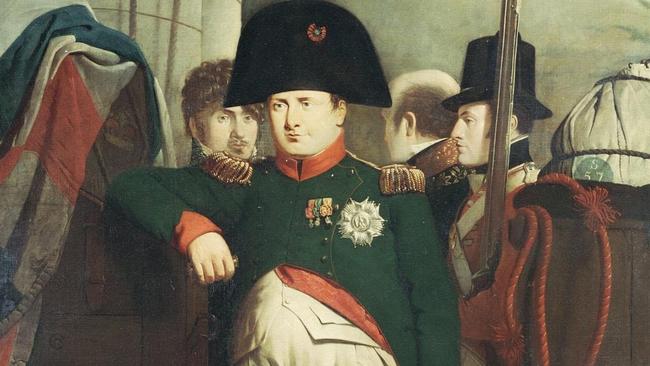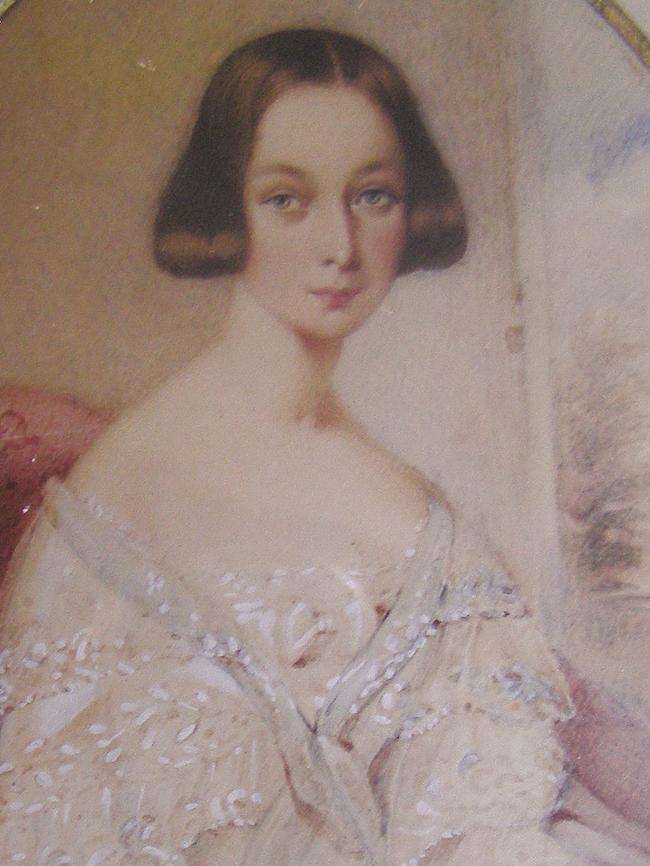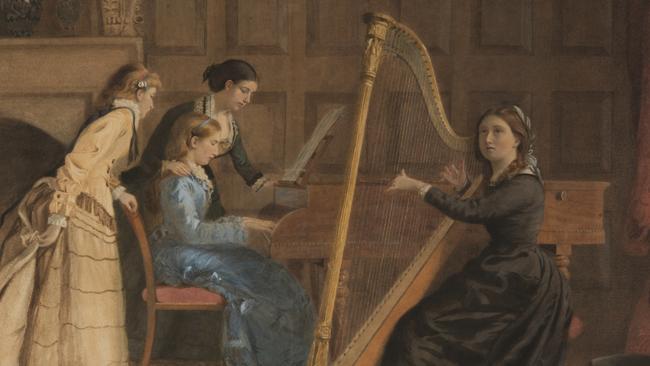Betsy And The Emperor’s tale of colonial flirtation ends in Sydney
Single mother Lucia Elizabeth Abell called Napoleon “Bony”. He ran off with her ballgown after she accused him of cheating at cards.

Today in History
Don't miss out on the headlines from Today in History. Followed categories will be added to My News.
Smarting over an unrequited teen infatuation with exiled emperor Napoleon Bonaparte and a failed marriage, single mother Lucia Elizabeth Abell alighted in Sydney in autumn, 1824.
Falling on hard times in England 20 years later, Abell published her memoirs of the 18 months she spent chatting, teasing and playing cards with the man she called Bony.
Bony, Abell wrote, called her the “Rosebud of St Helena” and ran off with her first ball gown after she accused him of cheating at whist.
The then Bessie Balcombe was 13 and home from her English boarding school. Bonaparte, 47, was pining for his wife Maria Louisa and their son, young Napoleon.
The paths of English trader William Balcombe and his wife Jane’s second daughter, and the defeated French conquorer, crossed 200 years ago in October, three days after he was deposited at James Bay on isolated St Helena.
Australian author and historian Anne Whitehead’s account of the friendship between the ailing, despondent French general and French-speaking Abell, Betsy And The Emperor, was released this month.

Whitehead combines Abell’s reminiscences with a study of her father’s travails, which in 1823 landed him in Sydney as the first colonial treasurer of NSW. In her account, Recollections Of The Emperor Napoleon On The Island of St Helena, Abell described her childhood home as a “rock, rising abruptly from the ocean” — resembling “a huge dark-coloured ark lying at anchor, floating on the bosom of the Atlantic”.
AN EDEN AMONG DESOLATION
The Balcombes lived 3km from James Town at the Briars, an Indian-style cottage surrounded by “an Eden blooming in the midst of desolation”. Abell described “A beautiful avenue of banyan trees ... interspersed with pomegranate and myrtle, and a profusion of large white roses.”
Word that England had exiled Bonaparte to St Helena reached the Balcombes two days before the emperor, with 30 generals and staff, arrived on October 16, 1815. Abell described her fear, explaining “Bonaparte was still associated, in my mind, with everything that was bad and horrible. I had heard the most atrocious crimes imputed to him.”
When St Helena governor Hudson Lowe refused to relinquish his residence for a prison, the run-down, vice-regal summer residence Longwood was selected. Visiting on October 17, Napoleon found it over-run with rats. Napoleon then noticed the Briars, a family sitting on the lawns, and asked to visit.
FEAR OF BONEY
“With terror I saw them begin to ... approach our cottage,” Abell wrote. “I recollect feeling so dreadfully frightened, I wished to run and hide.”
Being the family’s most fluent French speaker, her mother instructed her to remain. As Napoleon dictated he would live in a pavilion at the Briars without returning to James Town, he settled on the lawn, where he asked Abell about her French, also asking her who burned Moscow.

“I believe, sir, the Russians burnt it to get rid of the French,” she replied, adding that Napoleon “laughed and seemed pleased to find I knew anything about the matter”. Her brother Alexander, four, coined the name Bony as he sat on Napoleon’s knee looking at images of the emperor.
Napoleon occupied the Balcombe’s ballroom until December 10, although Balcombe continued as Napoleon’s providore in a friendship that proved disastrous. His English benefactor, politician Thomas Tyrwhitt, wrote in March, 1818, that Lowe suspected Balcombe of smuggling letters and negotiating money bills for Napoleon, implicating him an escape plot.
CHEQUERED AND A MELANCHOLY LIFE
Balcombe applied to return to Devon for six months as his wife was ill, possibly with hepatitis. Lowe refused to allow Balcombe back to St Helena, forcing him to sell his business at a heavy loss. In her memoir, Abell admitted: “My life has been a chequered and a melancholy one, and many of its incidents have ... absorbed the mind and abstracted attention from everything but the consideration of present misery.”
ILL-FATED MARRIAGE
AT 20, Bessie Balcombe married handsome former East India Company army officer Edward Abell in May 1822 in Devon. Their daughter Bessie was probably born in Calais in September 1822, by which time Edward had left for good.
Abell and her daughter voyaged to NSW with the Balcombe family in 1823, after Tyrwhitt secured William Balcombe’s appointment as colonial secretary. Abell spent almost eight years in the colony, charming future explorer Edward Eyre, then 17, with “her high polish and dash” on a return voyage from London.
Balcombe’s sons managed his property in Australia, but Abell and her mother were impoverished when he died in 1829. Abell returned to England with her daughter, supporting herself with piano lessons and memoirs. She died in 1871.
Besty And The Emperor; Anne Whitehead; Allen & Unwin; $32.99
Originally published as Betsy And The Emperor’s tale of colonial flirtation ends in Sydney


